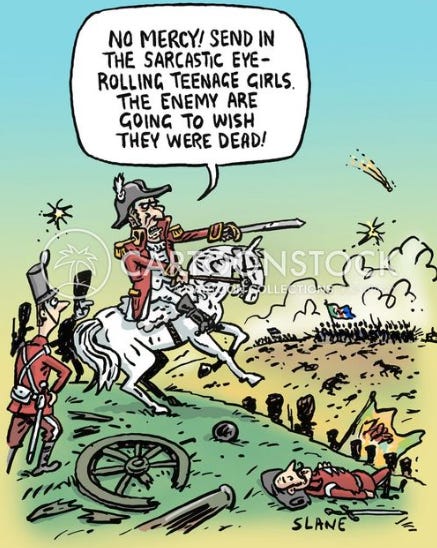Language as a Battlefield
Confronting Narrative Manipulation Through Euphemism and Offense
Language is more than a means of communication, it shapes how we think, what we see, and what we’re allowed to say. Those who control language have a powerful lever over public perception, policy debates, and even moral judgment. Increasingly, we see a tactic emerge where uncomfortable truths are obscured through euphemism, and meaningful descriptors are branded as offensive. This manipulation distorts reality and suppresses genuine dialogue, and it must be directly confronted. Being proficient in taking offense is not a useful skill for understanding or solving difficult problems.
Consider the term “service resistant” used to describe a subset of the homeless population who refuse aid or intervention. While the phrase was likely coined with bureaucratic neutrality, it also carries diagnostic clarity: it highlights a real challenge in policy design and service delivery. Yet, to some advocates, the term is labeled as “dehumanizing,” as if naming the difficulty is itself an act of cruelty. The result? A demand to use less accurate, more “compassionate” language that may conceal the actual problem.
Similarly, a police officer’s reference to “contaminated thinking”—a straightforward description of an addict’s impaired cognition—was derided as “disparaging.” But contaminated thinking isn’t an insult; it’s a clinical reality. Substance abuse impairs executive function, judgment, and self-care. To ban such phrases on the grounds of sensitivity is to deny others the language needed to describe what they observe and to act accordingly.
This tactic—weaponizing offense to sanitize discourse—is not new. Here are other examples of narrative control through language:
“Undocumented immigrant” replaces “illegal alien,” shifting the focus from the legal status to a more sympathetic framing, even when legal distinctions matter in law enforcement or policy.
“Justice-involved individual” has replaced “criminal” or “ex-convict” in some circles, softening the perception of past actions in a way that may hinder honest assessments of risk and recidivism.
“Pregnant people” is used instead of “women” in many public health documents, in an effort to be inclusive, but at the cost of erasing the reality that pregnancy is biologically sex-specific.
“Equity” has replaced “equality” in many DEI contexts, not as a synonym but as a philosophical shift toward unequal treatment to achieve statistical parity.
These aren’t just rhetorical flourishes, they’re deliberate acts of narrative engineering. They shape public sentiment, influence law and policy, and dictate what opinions are permissible.
When language becomes a contested terrain where clarity is sacrificed for ideological purity, society loses its grip on reality. We can no longer describe problems, much less solve them. Professionals, whether they are social workers, police, doctors, or educators, are pressured to use language that obscures facts, lest they be accused of insensitivity. As George Orwell warned, political language is often designed to make lies sound truthful and murder respectable.
To confront this manipulation, society must defend the right to use precise, even uncomfortable, language. This doesn’t mean embracing cruelty or indifference. It means refusing to allow emotional blackmail to dictate discourse. A healthy democracy depends on shared realities, not sanitized illusions. If we surrender language to the gatekeepers of offense, we surrender the tools of reason and reform.





Lots to agree with in this post. I dont see how knowing all the ins and outs to the homeless crisis puts the city in a better posistion to manage a liveable city. All that crap about a safe place to raise a family, an ideal place for business and a premier place to live is the lie we tell ourselves and others to wash away the shit hole this place has become. Both the housed and unhoused are suffering in this crisis.. How about the three talking heads start asking the hard questions to all those experts, providers and advocates. Can the city solve this problem ? If the city cant solve it how does it manage the problem and deliver a liveable city to all citizens ? How come the city can stand on its branding message lie and refuse to take a messaging posistion on the cities role in this crisis. This group at the very least should be stamping out the cities Homeless strategy, plans and actions.. Im afraid its turning into O jeez its someone elses problem our hands are tied